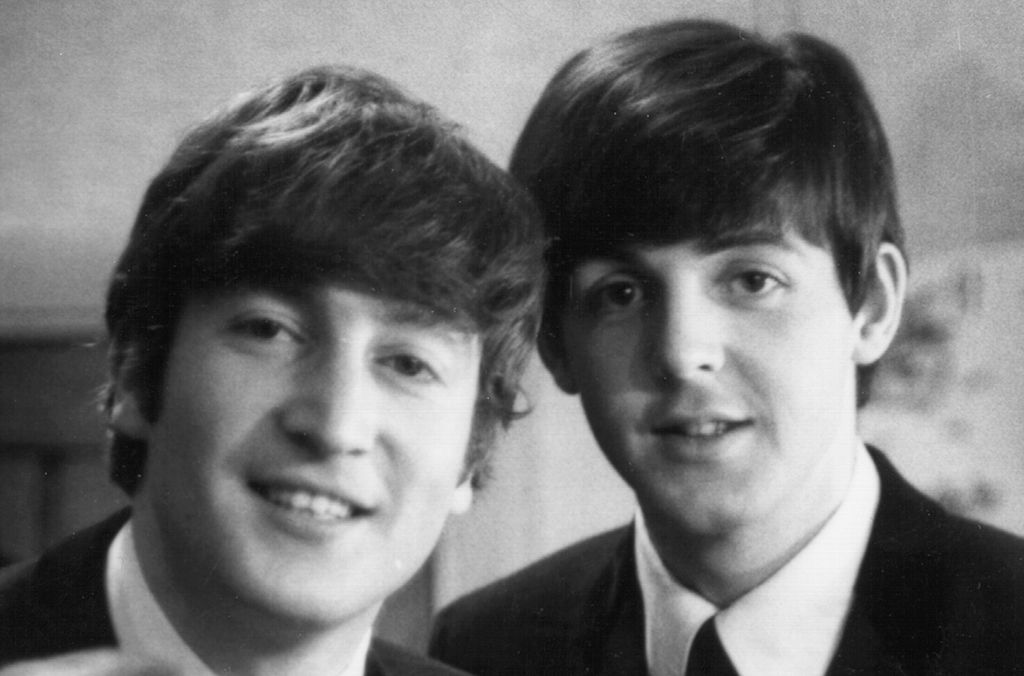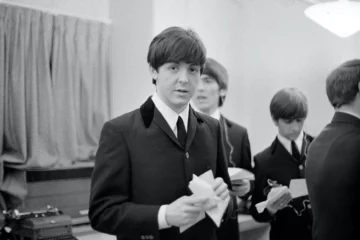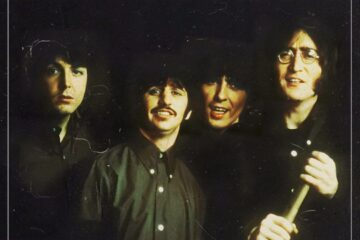Paul McCartney and John Lennon learned to make music together. After they met as teenagers, the pair spent their youth in McCartney’s kitchen, listening to the blues and early rock records they loved and figuring out what makes a good song. As The Beatles grew into the biggest band on the planet, their synergy remained at its core as their creative language was a shared one, and the two were intertwined in each note. But just because they were so connected, that doesn’t mean they loved each and every song the other made.
In fact, sometimes, they passionately hated what the other created. Especially in their later years, when their songwriting partnership had become strained to the point of separation, and they were writing more things solo, they quite regularly got nasty about one another’s work. Lennon referred to McCartney’s later storytelling works as “granny music shit” because he was quick to slag off his old friend’s work as their collaboration broke down.
McCartney threw some verbal punches too, but never quite as harsh as Lennon’s. Instead, the stories about the songs that he hated are more veiled, built from anecdotes of eye rolls in the studio or a general lack of cooperation when McCartney would sometimes simply refuse to help out on a song he didn’t like.
That was the case on ‘She Said, She Said’, a track from Revolver that marked the start of a slippery slope as the pair grew apart. “John brought it in pretty much finished,” recalled McCartney in Barry Miles’ Many Years From Now. It was less about the song and more an example of how the friends regularly took their personal dramas out on the music. He added: “I’m not sure, but I think it was one of the only Beatle records I never played on. I think we’d had a barney or something, and I said, ‘Oh, fuck you!’ and they said, ‘Well, we’ll do it.’ I think George played bass.”
But later down the line, McCartney’s critique of Lennon’s work got louder as there were more and more songs that he started to hate as his friend’s style shifted. While McCartney remained interested in storytelling and good melodies, Lennon’s experimentation got even weirder when he linked up with Yoko Ono and her knowledge of audio art. ‘Revolution 9’ was a perfect example of that, and McCartney hated it. There’s no direct attack from the musician himself, but people in the studio recalled the frosty atmosphere. “Paul simply didn’t see it as Beatles music,” engineer Geoff Emerick wrote in his memoir, “And he certainly didn’t agree that it was the direction that The Beatles should go in.” He refused to help make the song and tried, unsuccessfully, to get it cut from the record.
It’s the same story for ‘I Want You (She’s So Heavy)’, made at the very end of the band’s lifespan when the friends were worlds apart. Again, Emerick noticed McCartney refusing to cooperate with the track, which he didn’t think was reflective of the band. “Over my shoulder, I saw a dejected Paul sitting slumped over,” he said. “To Paul, it must have been like ‘Revolution 9’ all over again. John was deliberately distorting the Beatles music, trying to turn the group into an avant-garde ensemble instead of a pop band”.
But among them, there were plenty of songs that McCartney deeply loved from Lennon’s discography. Even through their fights and fallouts, the two musicians were best friends, or even more like brothers. So, even in the dark moments, there was always a clear pride and love for the other.
That’s seen clearly in McCartney’s favourite Lennon songs, as all of them are richly personal and vulnerable. In particular, he loves ‘‘Strawberry Fields Forever’, ‘Across the Universe’, ‘Julia’ and ‘Beautiful Boy’, all of which deal with the musician’s childhood, new parenthood and more tender, emotional side. “I’m often asked for my favourite tunes kind of thing, and I always include ‘Beautiful Boy’,” he said of the latter.
In another interview, he commented, “’Strawberry Fields Forever’, I loooooved. ‘Across the Universe’, I loooooved,” extending the notes in his trademark style. But overwhelmingly, McCartney clearly loved the songs that spoke to the person he knew and the inner world he was privy to. “’Julia’…is about the mum he couldn’t live with,” he said of ‘Julia’, “So I loved the poignancy of that because I’d been with him round to Julia’s house to visit her. And I knew how deeply he loved her. So ‘Julia’, I would go with.”
“I have such an admiration for John like most people,” McCartney added, “But to be the guy who wrote with him, well that’s enough. Right there, you could retire and go, ‘Jesus, I had a fantastic life. Take me, Lord’.” Even through their ups and downs, the two friends and powerful creative duo loved and respected each other despite not always loving each and every song.



